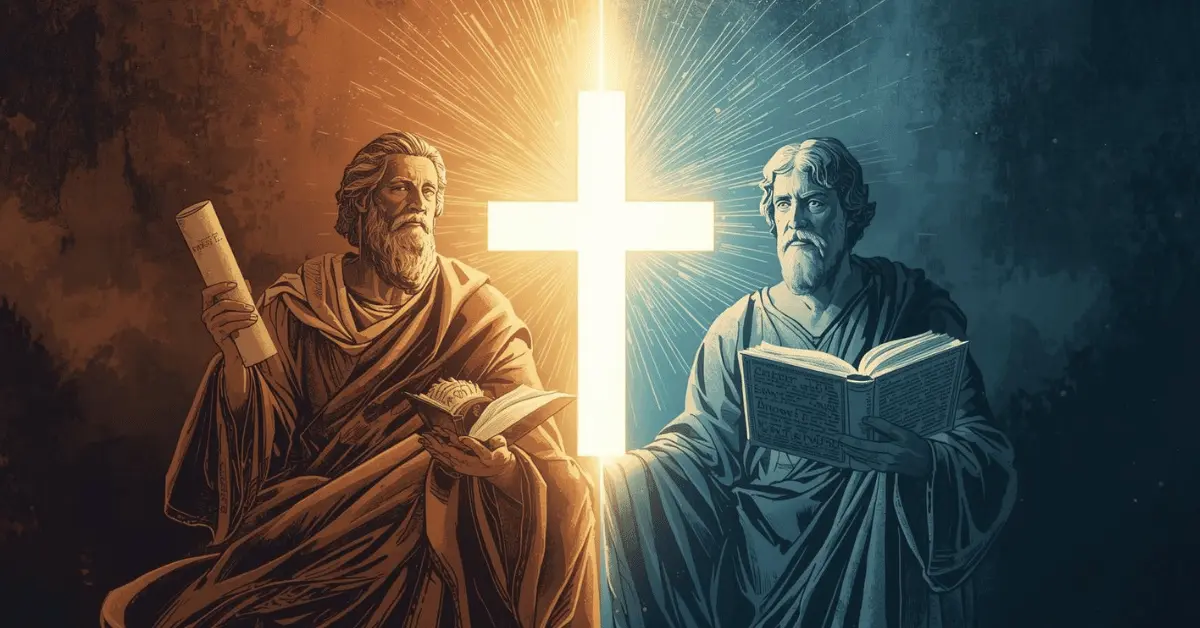Understanding the difference between prophets and apostles is key to grasping how God worked through individuals in both the Old and New Testaments. While both groups were chosen to deliver God’s message, their responsibilities, authority, and timing in redemptive history differ in significant ways.
The Role of Prophets in Scripture
Prophets were God’s chosen messengers, raised up throughout the Old Testament and into the New Testament era to speak His truth. They served as spiritual guides, warning, instructing, and encouraging God’s people.
Prophets as God’s Mouthpieces
The central role of prophets was to declare God’s word directly to His people. Their messages often included calls to repentance, reminders of God’s covenant, and visions of the future. From Isaiah to Jeremiah, these individuals carried divine authority to correct and guide Israel.
Prophets in the New Testament
While prophecy is often associated with the Old Testament, the New Testament also acknowledges prophets. Figures like Agabus (Acts 11:28) foretold events, while others encouraged believers through Spirit-led messages.
The Mission of Apostles in the New Testament
In contrast to prophets, apostles were specifically chosen witnesses of Jesus Christ, entrusted with spreading the gospel and establishing the church.
Apostles as Christ’s Messengers
The word apostle means “one who is sent.” The twelve apostles, along with Paul, were personally commissioned by Jesus to proclaim the good news. Their authority came directly from their relationship with Christ and their unique calling to lay the foundation of the church.
Apostolic Authority and Writings
Unlike prophets, apostles carried a distinct responsibility: their writings and teachings formed the New Testament canon. Their witness of Christ’s life, death, and resurrection gave them a unique, unrepeatable authority that continues to shape Christian faith today.
Key Differences Between Prophets and Apostles
Although both roles were essential in God’s plan, prophets and apostles differed in function and purpose.
Distinctions in Authority
- Prophets: Spoke God’s message to guide, correct, and prepare His people, especially before the coming of Christ.
- Apostles: Served as Christ’s direct witnesses, entrusted with founding the church and writing Scripture.
Differences in Historical Context
- Prophets were active throughout Israel’s history, often preparing the way for the Messiah.
- Apostles emerged in the New Testament era, specifically after Christ’s resurrection, with a mission that ended once the church’s foundation was established.
Why Both Roles Were Necessary
God used both prophets and apostles to advance His redemptive plan. Prophets pointed forward to Christ, while apostles proclaimed Christ fulfilled.
Prophets Prepared the Way
Through prophecy, God revealed glimpses of the Messiah and called His people to remain faithful. Without the prophets, the context and expectation for Christ’s coming would not have been clear.
Apostles Confirmed the Fulfillment
After Christ’s resurrection, apostles confirmed that the prophecies had come true. Their mission was not to add to God’s law but to testify about Jesus and ensure the church’s growth on the right foundation.
What This Means for Believers Today
Understanding the difference between prophets and apostles helps modern believers rightly interpret Scripture and avoid confusion about spiritual authority.
The Lasting Impact of Their Work
While we no longer have apostles or Old Testament-style prophets today, their words remain preserved in the Bible. Christians are called to study these writings, trusting that God’s full revelation is complete in Christ.
Guidance for Modern Faith
Believers today rely on the Holy Spirit, pastors, and teachers who faithfully explain Scripture rather than seeking new apostles or prophets with equal authority. As Paul wrote in Ephesians 2:20, the church is “built on the foundation of the apostles and prophets, with Christ Jesus himself as the chief cornerstone.”
Conclusion
When comparing prophets vs apostles, Scripture makes their differences clear. Prophets delivered God’s message before Christ to prepare the way, while apostles were firsthand witnesses of Christ, entrusted with building the early church and recording the gospel message.
For Christians today, this distinction reinforces the sufficiency of Scripture and the completed work of Christ. By studying both the words of the prophets and the teachings of the apostles, believers gain a fuller understanding of God’s plan for salvation and the enduring truth of His Word.
👉 To learn more about how the early church functioned, you can explore resources from Bible Gateway for deeper study of prophetic and apostolic writings.


4 thoughts on “Are Prophets and Apostles the Same? The Biblical Difference Explained”